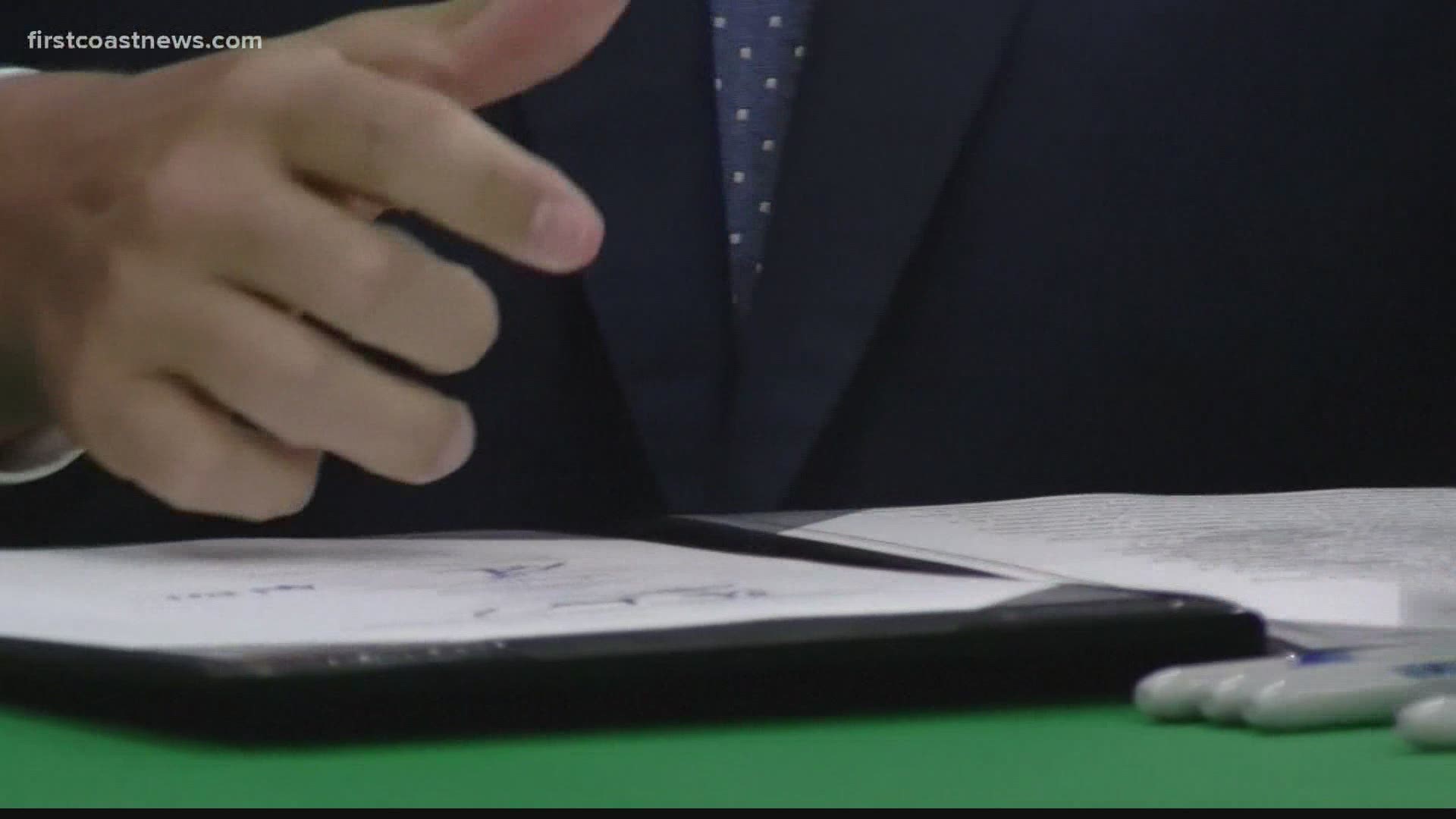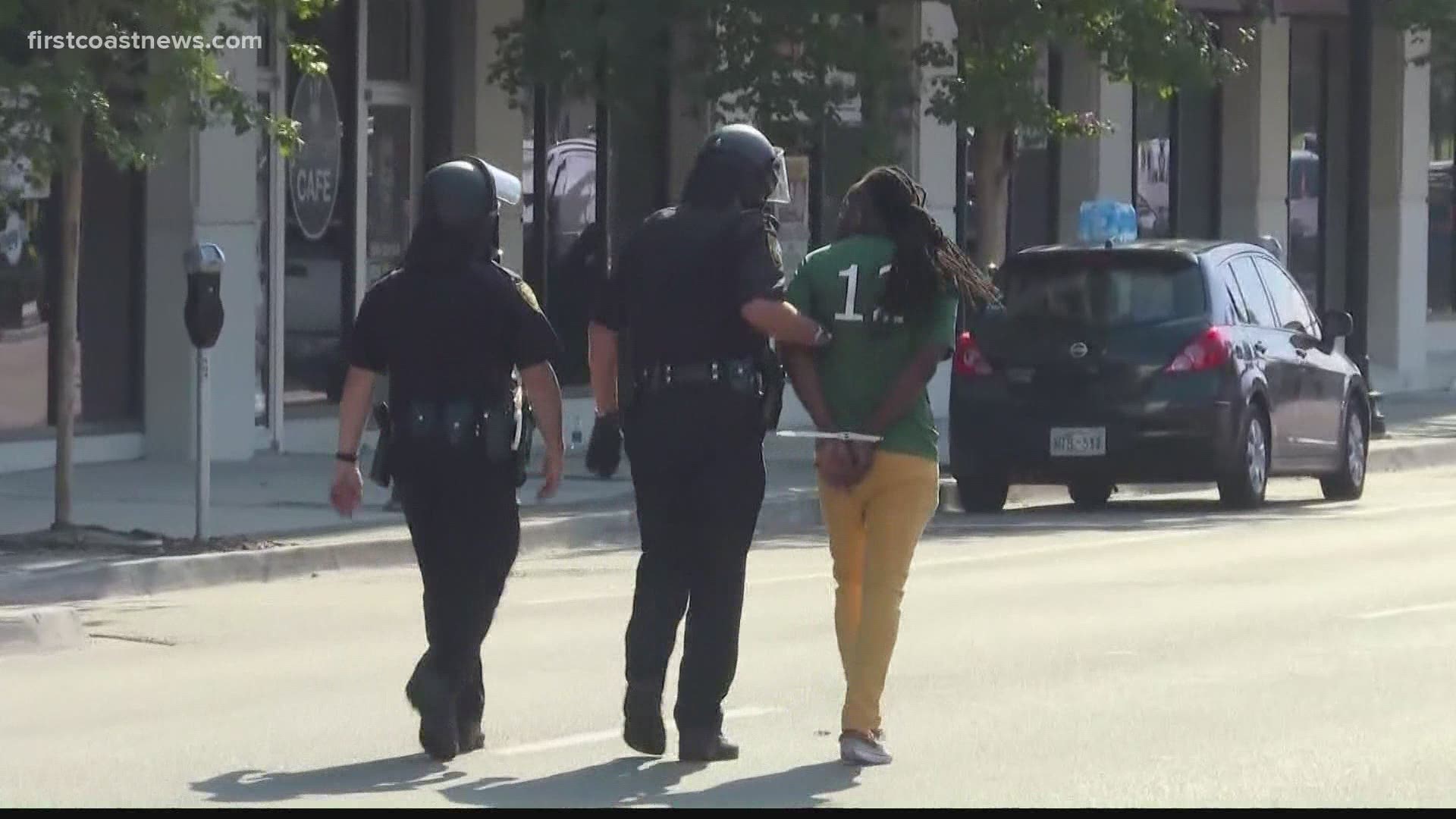JACKSONVILLE, Fla. — Multiple civil rights groups in Florida filed a federal lawsuit Tuesday saying HB 1, also known as the 'anti-riot bill,' is unconstitutional.
The law gives more authority for prosecutors to charge people with felonies during protests and allows police to have broader arresting powers during protests.
The bill made headlines nationally with many claiming the bill is targeting Black protesters.
"The law targets Black protestors and their allies who demand racial justice and has already slowed protest activity among Black organizers in Florida," according to a press release by Ben Frazier of the Northeast Coalition of Jacksonville.
The plaintiffs claim HB1 not only violates the 1st Amendment of the U.S. Constitution giving people the right to peacefully assemble but also the 14th Amendment because of the law's racial implications, according to the lawsuit.
"The text, legislative history, timing, and public statements about the Act made by Florida officials all make clear that the Act was racially motivated," the lawsuit says. "And as noted, multiple provisions reveal that the Act was explicitly designed to single out and punish Black organizers and those who lead protests seeking to end police violence against Black people. "
The plaintiffs for the lawsuit are:
- The Dream Defenders
- The Black Collective Inc.
- Chainless Change, Inc.
- Black Lives Matter Allianca Broward
- Florida State Conference of the NAACP Branches and Youth Units
- Northside Coalition of Jacksonville, Inc.
The defendants in the lawsuit are:
- Gov. Ron DeSantis
- Attorney General Ashley Moody
- Leon County Sheriff Walt McNeil
- Jacksonville Sheriff Mike Williams
- Broward County Sheriff Gregory Tony
The lawsuit identifies several sections the plaintiffs believe violate the Constitution. The complaints against these sections are, according to the lawsuit,:
- Section 15, which sets participating in a riot at a third-degree felony and eliminates bail for people arrested
- Section 4, which prohibits protesters from blocking streets
- Section 16, which requires a person arrested for break of peace to spend a night in jail
- Section 8, which creates mob intimidation as a misdemeanor offense
- Section 14, which creates the crime of cyberintimidation
- Section 18, which shields civil liability from people who injure or harm protesters
- Section 1, which makes it harder for local governments to defund law enforcement
- Section 3, which requires local governments to respond to riots 'appropriately' to protect people and property
"On its face, the Act is both overbroad and vague; it subjects non-violent protestors to criminal liability for exercising protected rights to speech and assembly," the lawsuit says in its introduction. "Meanwhile, the Act provides an affirmative defense to those who are violent towards protestors, allowing them to escape potential civil liability for killing or injuring non-violent demonstrators."
The lawsuit alleges that protesters who are not engaging in any criminal activity could be held liable during a protest and could face jail time.
"[HB 1] has instilled fear in the hearts and minds of our volunteers, members and supporters," Frazier said. "As community organizers, participants, and peaceful protestors, we are fearful that this law puts us in harm's way.”
“H.B. 1 has a chilling effect on all Floridians’ First Amendment rights — it chills free speech, silences dissent, and criminalizes peaceful protesters," said Anya Marino of the ACLU of Florida. "The provisions in this law are clearly unconstitutional, and we cannot let them stand.”
This story will be updated. You can read the lawsuit in its entirety below.


